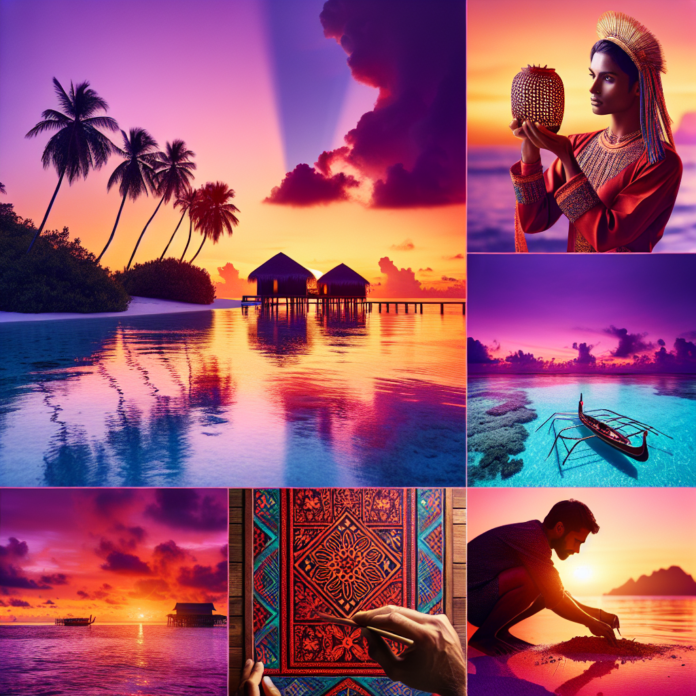The Maldives is a tropical paradise known for its pristine beaches, crystal clear waters, and luxurious resorts. While many travelers flock to the Maldives for relaxation and water sports, the country also offers a rich cultural experience that shouldn’t be missed. From traditional music and dance to local cuisine and art, there are plenty of ways to immerse yourself in the beauty of Maldivian culture.
Traditional Music and Dance
One of the best ways to experience Maldivian culture is through traditional music and dance. The Maldives has a rich history of music and dance, with influences from Arab, African, and South Asian traditions. One of the most popular forms of traditional Maldivian music is called “bodu beru,” which features a drumming ensemble and energetic dancing. Visitors can often find bodu beru performances at resorts or cultural events throughout the Maldives.
Local Cuisine
No cultural experience is complete without trying the local cuisine, and the Maldives offers a unique blend of flavors influenced by its geographic location and history. Seafood is a staple of Maldivian cuisine, with dishes like mas huni (tuna salad), garudia (fish soup), and fihunu mas (grilled fish) being popular choices. Visitors can also try traditional snacks like hedhikaa (deep-fried snacks) and sweet treats like huni hakuraa (coconut cake).
Art and Handicrafts
Maldivian art and handicrafts are a reflection of the country’s culture and natural beauty. Visitors can explore local markets and shops to find handmade items like woven baskets, wooden carvings, and traditional clothing. Dhoni boats, which are traditional Maldivian fishing boats, are also a popular subject for local artists and make for unique souvenirs.
Cultural Events and Festivals
The Maldives celebrates a number of cultural events and festivals throughout the year, offering visitors a chance to experience local traditions and customs. One of the most popular festivals is Eid al-Fitr, which marks the end of Ramadan and is celebrated with feasts, prayers, and social gatherings. Visitors can also attend traditional ceremonies like weddings and local island festivals to get a deeper insight into Maldivian culture.
FAQs
Q: What is the best time to visit the Maldives for cultural experiences?
A: The Maldives experiences a tropical climate with two main seasons – the dry season (from November to April) and the wet season (from May to October). The dry season is generally considered the best time to visit for cultural experiences, as there are more festivals and events happening during this time.
Q: Are there any cultural restrictions or etiquette that visitors should be aware of?
A: While the Maldives is a Muslim-majority country, visitors are not required to adhere to strict dress codes or customs. However, it is important to be respectful of local traditions and customs, especially when visiting mosques or attending cultural events. Modest clothing is recommended, and it is considered polite to ask for permission before taking photographs of local people.
Q: How can visitors learn more about Maldivian culture during their stay?
A: Visitors can immerse themselves in Maldivian culture by participating in cultural activities offered by resorts, attending local events and festivals, and exploring the islands to interact with local communities. Many resorts also offer cultural tours and workshops that allow guests to learn more about traditional practices like fishing, cooking, and handicrafts.
Q: What are some traditional souvenirs to buy in the Maldives?
A: Traditional souvenirs to buy in the Maldives include handmade items like woven baskets, wooden carvings, local artwork, and dhoni boat models. Local crafts such as lacquerware and coir products are also popular choices for visitors looking to take home a piece of Maldivian culture.
Overall, the Maldives offers a diverse and vibrant cultural experience that goes beyond its beautiful beaches and luxurious resorts. By exploring traditional music and dance, trying local cuisine, discovering art and handicrafts, and participating in cultural events, visitors can truly immerse themselves in the beauty of Maldivian culture.




